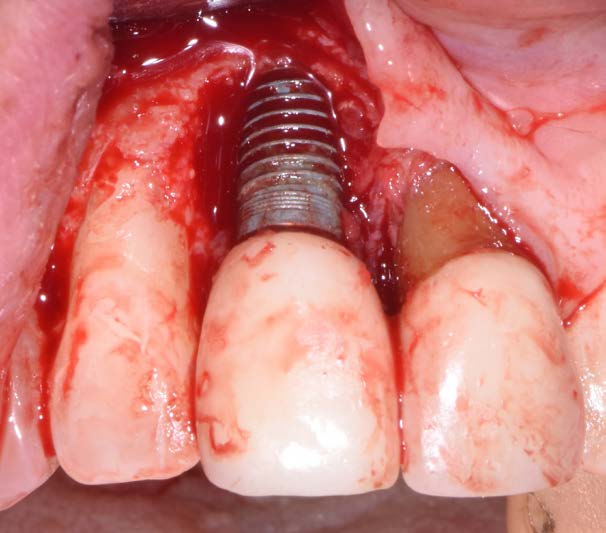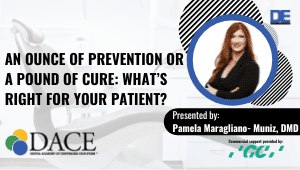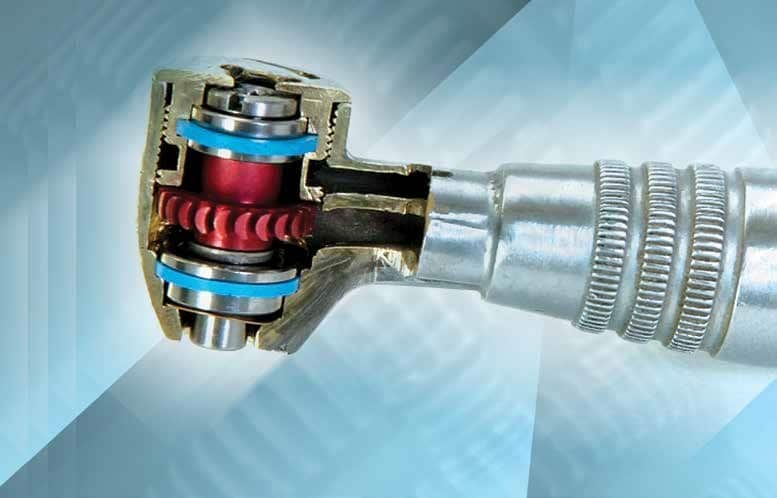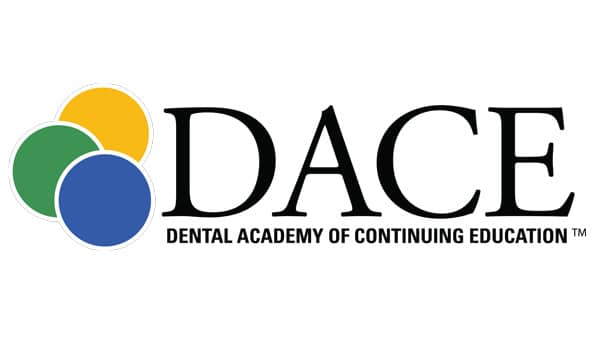Courses

All screwed up: Strategic considerations for failing implants
Failing implants can result in major esthetic and functional changes. These implants, however, should not be immediately condemned to removal. (3 credits)

Alzheimer’s risk reduction and the dental professional
Treating patients with Alzheimer’s disease in the dental office involves more than simply struggling with the execution of certain procedures. (3 credits)

An Ounce of Prevention or A Pound of Cure: What’s Right For Your Patient?
This webinar was the fifth of five presentations delivered as part of the GC America World Tour – USA Symposium entitled “Minimal Techniques to Maximize Esthetic and Functional Restorations.”

Anatomy of a handpiece: Understanding handpiece maintenance and repairs
Today’s clinician is extremely dependent on the handpiece to sustain a smooth-running practice. The handpiece is an incredibly sophisticated device that requires a diligent maintenance protocol to keep it running properly and safely. The dental team can keep handpieces functioning smoothly longer, and maximize the return on the significant investment the dentist has made in handpiece technology, through appropriate maintenance procedures.
3 CE Credits

Antibiotic stewardship
This course will provide an understanding of antibiotic stewardship, aid dental teams in the evaluation of their current protocols, and apply clinical practice guideline tools for optimal antibiotic stewardship. (3 credits)





